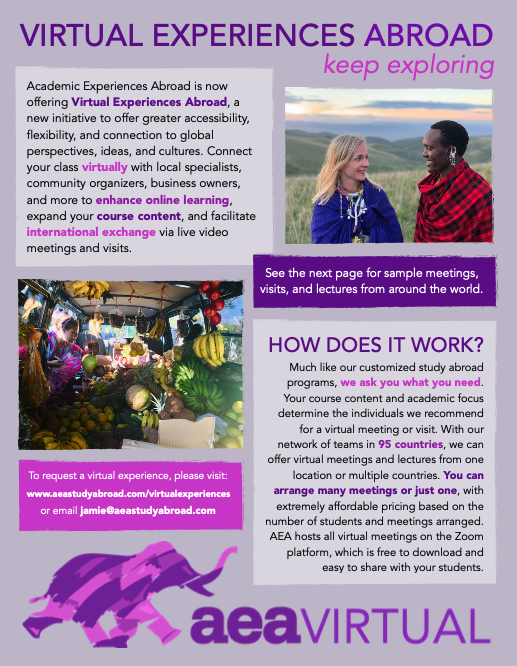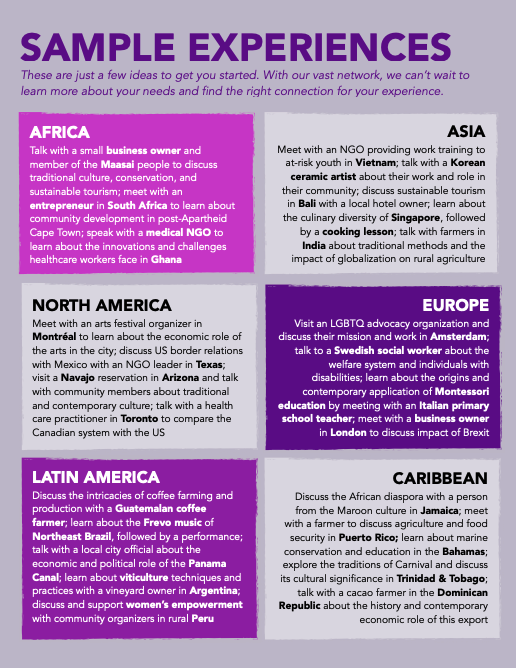What are Virtual Experiences?
Virtual Experiences are solutions for the COVID era and beyond- adapted to new or existing online courses that need supplemental materials such as meetings, speakers, internships or language exchanges with knowledgable people around the world. Let us do the work, so faculty can focus on educating.
What are some examples of these solutions?
The Global Learning Library fills a massive void in global education, and better yet- it can be used by the whole college or university at an affordable cost. Incorporate one, two, three, or hundreds of hours of recorded content with knowledgeable humans from around the world. Request content for your course, and we will arrange the speaker (for live or recorded content), interview, record, edit and host the conversations on our platform.
Options include:
1. Live Virtual Meetings and Speakers: 99% of college students don’t travel even during the good times. For these students, online learning and collaboration with people from around the world is a far more affordable and sustainable alternative to physical study abroad. Faculty can arrange these speakers through us, and we will take care of the video recording as well.
2. Recorded Speaking Engagements: This is the staple of the Global Learning Library, which is growing in recorded speaker content in a variety of topics every week. Faculty can set up a cohort that will use certain videos for class, and students can then subscribed for a semester, for example. Institutional membership is available at a very affordable price.
3. Virtual Faculty Inspections with locals and to inaccessible locations during these uncertain COVID-19 times. Even during good times, faculty and administrators who do not have the budget or time to go to a location can arrange personal, live inspections along with recorded content for planning future study abroad programs.
4. Virtual Courses can include unique meetings with people in a variety of industries and segments of society. Live, virtual engagements in addition to recorded meetings, or alone, can include private cohort communications, chat, grading and analytics. We can even white label your course, so it appears under your institution’s logo.
5: Virtual Inspections to countries during these uncertain COVID-19 times, or for faculty and administrators who do not have the budget or time to go to the location at this time.


What are the benefits and challenges of a Virtual Programming?
Let’s start with the benefits:
You can go to China, Korea, Italy, anywhere- virtually
Meet with the same people you had planned to meet- virtually
Allow your students to earn credit through a virtual program
Give your students the opportunity to meet people around the world- virtually
Show your students what creative problem solving looks like
Improve upon a course by incorporating virtual meetings and visits that were previously not possible
When travel resumes, you can meet with the people that you have already engaged with and have a more meaningful experience
Now the challenges:
Managing expectations is important not only for students, but for faculty and administrators
Updates will need to be made to the program to make it work virtually
Meetings may need to be at challenging times because of the timezones
Cultural excursions will need creative alternatives, such as connecting with local organizations
Everyone will need to be timely to connect with those overseas- virtually- and patience will be required due potentially poor Internet connections

